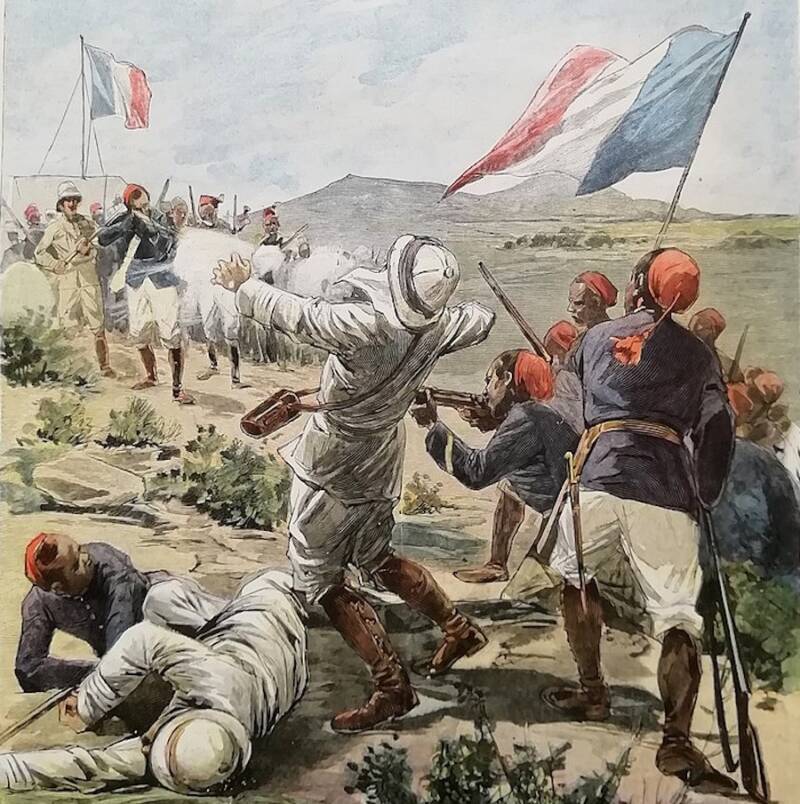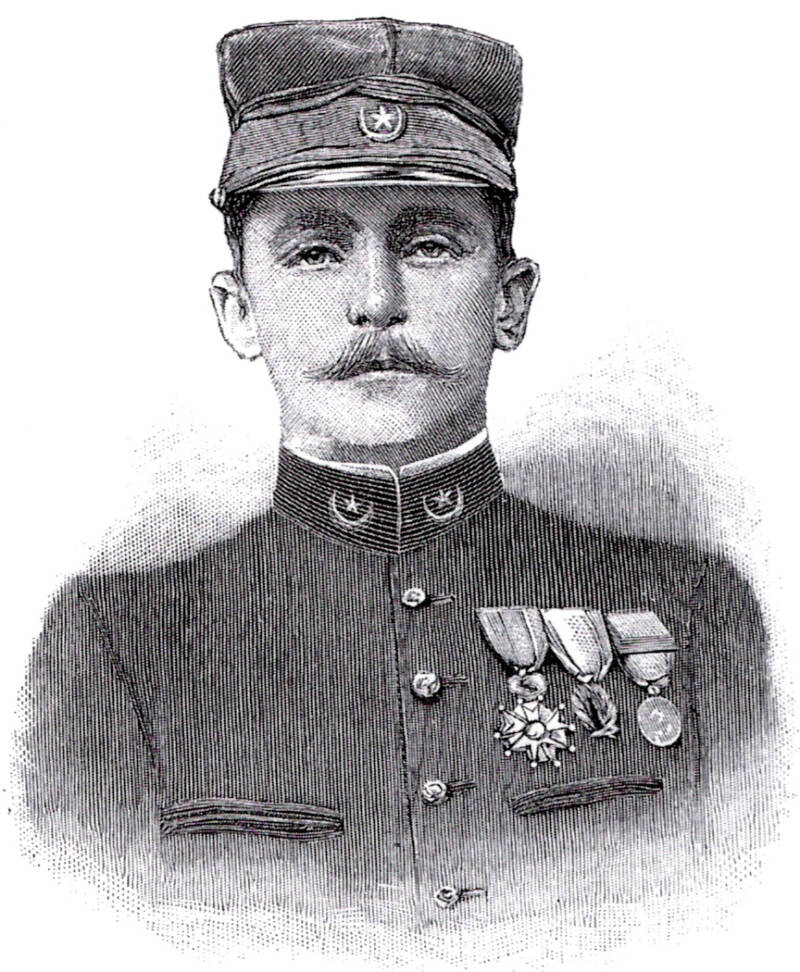|
In 1898, French soldiers Paul Voulet and Julien Chanoine were sent to unify colonies in Africa. But they brutalized them instead. The murder of Lt. Colonel Klobb is remembered as Capt. Paul Voulet’s ultimate act of insanity that alerted France to the dangers of its empire. Across hundreds of square miles of the Sahara in the late 19th century, two bloodthirsty French officers, Paul Voulet and Julien Chanoine, unleashed one of the most gruesome campaigns of atrocities ever recorded in the history of colonialism. Voulet and Chanoine’s violence, as well as their gradual descent into utter barbarism, shocked even the bellicose Europe of that era, and would forever scar France’s claims that the country was on a “civilizing” mission in Africa. Word Gets Back To France
Julien Chanoine was less respected than his commanding officer, but just as willing to carry out his bizarre and terrifying schemes. One of the mission’s junior officers, Lt. Louis Péteau, had been an eager participant in the looting and slave-raiding early on in the Voulet-Chanoine Mission. But when he’d finally had enough and argued with Chanoine, he was dismissed and ordered to return to France. On his way back, Péteau wrote a 15-page letter to his fiancée describing the atrocities he’d seen. He described how porters who were too weak from dysentery to move had been refused medicine and were often beheaded and replaced with enslaved locals. To make matters worse, Voulet had ordered the severed heads to be placed on stakes to terrify nearby villagers. Péteau also revealed the horrific truth behind the massacre at Sansané Haoussa, relating how the people there had been murdered despite their chieftain giving into every French demand. Péteau’s letter soon made its way to Antoine-Florent Guillain, the Minister of Colonies, who immediately telegraphed orders to have Chanoine and Voulet arrested: “I hope the allegations are unfounded — if against all probability these abominable crimes are proven Voulet and Chanoine cannot continue to lead mission without a great shame for France…” Klobb’s Pursuit And Voulet’s Treason Wikimedia CommonsZinder, Niger, outside of which the fateful meeting of Voulet and Klobb took place. Leading the pursuit was Lt. Col. Klobb, the administrator of Timbuktu. His journey was preceded by a letter ordering Chanoine and Voulet to surrender themselves, but the two officers kept the letter secret from their subordinates. The experienced Klobb made rapid progress in finding them. Although Voulet and Chanoine had a year’s head start, Klobb had spent more than 10 years in Africa, much longer than any other officer of the time. Supported by a small group with little baggage, Klobb caught up to the column by mid-July 1899, following their literal trail of destruction. In his diary on July 11, he wrote: “Arrived in a small village, burnt down, full of corpses. Two little girls hanged from a branch. The smell is unbearable. The wells do not provide enough water for the men. The animals do not drink; the water is corrupted by the corpses.” On July 13, Voulet had 150 women and children from a local village murdered, ostensibly to avenge the death of two of his own men who were killed during a raid in a separate nearby village. On July 14, Bastille Day, just outside the town of Zinder, Klobb finally found Voulet. Approaching alone and unarmed, Lt. Col. Klobb had given orders to his party not to open fire under any circumstances. Voulet demanded that Klobb turn around, but Klobb refused. So Voulet ordered his men to fire two salvos. Klobb was killed and his soldiers fled. The Downfall Of Voulet And Chanoine Later that day, Voulet stripped off his badges of rank and gave a bizarre speech to his officers: “Now I am an outlaw, I disavow my family, my country, I am not French anymore, I am a black chief. Africa is large; I have a gun, plenty of ammunition, 600 men who are devoted to me heart and soul.” “We will create an empire in Africa, a strong impregnable empire that I will surround with deserted bush… If I were in Paris, I would be Master of France.” Chanoine responded with enthusiasm, but the other officers quietly slipped away, certain that Voulet had lost his mind. The soldiers, reluctant to obey Voulet now that he’d removed his insignia and fearful of what might happen to their families if they followed him, revolted. They quickly overpowered Voulet’s few loyalists, and Chanoine was killed by seven bullets and two saber cuts. Meanwhile, Voulet was chased out of the camp, taking refuge in a nearby village. When he tried to come back to his troops, he was shot and killed by a sentry. Wikimedia CommonsLt. Paul Joalland, who completed the Voulet-Chanoine Mission, would later go on to have a colorful military career, serving in French Indochina and World War I. Lt. Paul Joalland was the sole officer left in charge. Joined by the loyal Senegalese troops and Klobb’s second-in-command, he completed the original mission, linking up with the other two Saharan expeditions to defeat the warlord Rabih az-Zubayr and secure the region for France. But in the years following, the mission would forever taint France’s image in terms of colonialism. Ultimately, the expedition served as a warning of what could happen when people were placed at the mercy of Europeans with wild dreams who were capable of unspeakable cruelty. After reading about the horrific Voulet-Chanoine Mission, find out more about the tragic display of colonial subjects as curiosities. Then, learn about how British policies led to the deaths of millions in the Bengal Famine.
0 Comments
Leave a Reply. |
Dr. KizombaManuel & Hatian John. ArchivesCategories |


 RSS Feed
RSS Feed